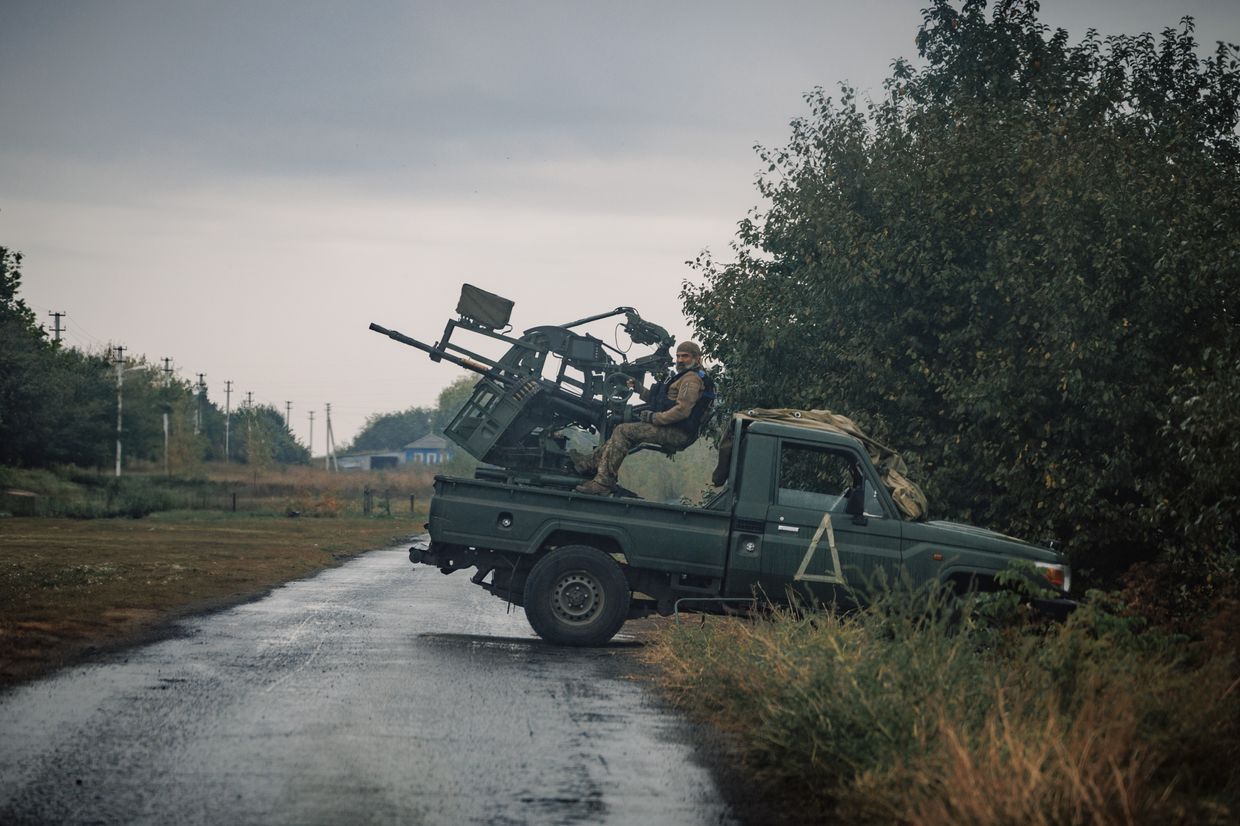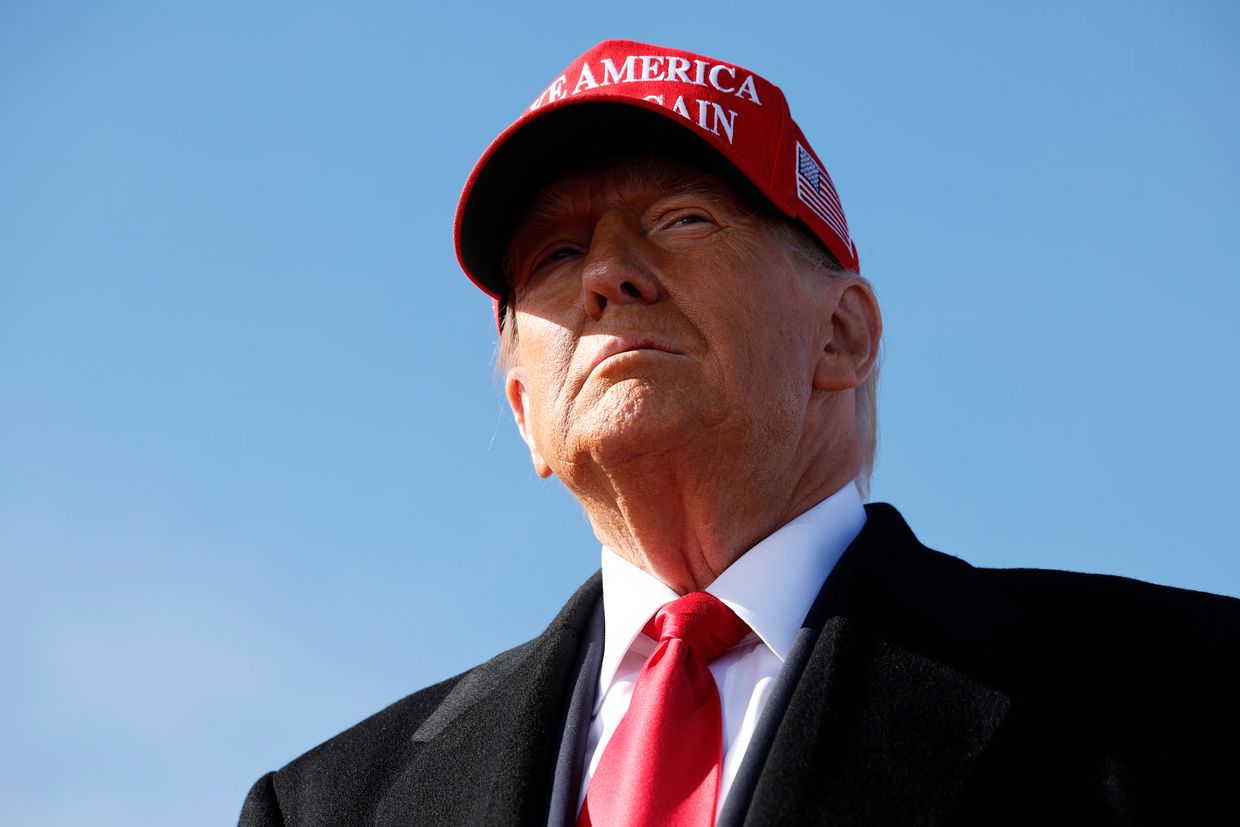
Ukraine war latest: Trump to appoint Ukrainian peace envoy 'soon' to lead talks on ending war with Russia
Key developments on Nov. 13:
- Trump to appoint Ukrainian peace envoy 'soon' to lead talks on ending war with Russia, Fox News reports
- 6th German IRIS-T to arrive in Ukraine by end of 2024, Zelensky says
- Putin cuts payments for wounded in war against Ukraine
- Military donations in Ukraine plummet as war pressure mounts, Bloomberg reports
President-elect Donald Trump may "soon" appoint a Ukrainian peace envoy to lead negotiations on ending Russia's war, Fox News reported on Nov. 13, citing its multiple undisclosed sources.
"You're going to see a very senior special envoy, someone with a lot of credibility, who will be given a task to find a resolution, to get to a peace settlement," one of the sources said, adding that the appointment will happen "in short order."
Kurt Volker held a similar position and served as the U.S. Special Representative for Ukraine on a volunteer basis from 2017 to 2019. The post of Ukrainian peace envoy is also expected to be unpaid.
Over the past few days, Trump has announced new members of his future administration. Meanwhile, some of Trump's picks have made controversial statements about the war in Ukraine and opposed further provision of military aid for Kyiv.
U.S. President-elect Donald Trump on Nov. 12 selected Elon Musk and Vivek Ramaswamy to lead the "Department of Government Efficiency," a new body designed to "drive large-scale structural reform."
Ramaswamy, a wealthy entrepreneur, and Musk, one of the world's richest people and owner of SpaceX, Tesla, and X (formerly known as Twitter), have no background in politics apart from Ramaswamy’s brief running for the Republican presidential nomination.
While Musk has repeatedly echoed pro-Russian talking points on Ukraine, including proposals to cede territory to Moscow, Ramaswamy was among the most vocal opponents of military aid for Kyiv.
Trump also named South Dakota Governor Kristi Noem as the leader of Homeland Security, who earlier called Russia's invasion of Ukraine "Europe's fight, not ours."
Earlier, Trump named Michael Waltz his national security advisor. Waltz's views on Ukraine evolved from an ardent supporter of U.S. military aid to questioning it and advocating for relocating these resources against China.
Trump's defense secretary is confirmed to be Pete Hegseth, an army veteran and current Fox News host. His secretary of state, overseeing U.S. diplomacy, is reported to be Marco Rubio.
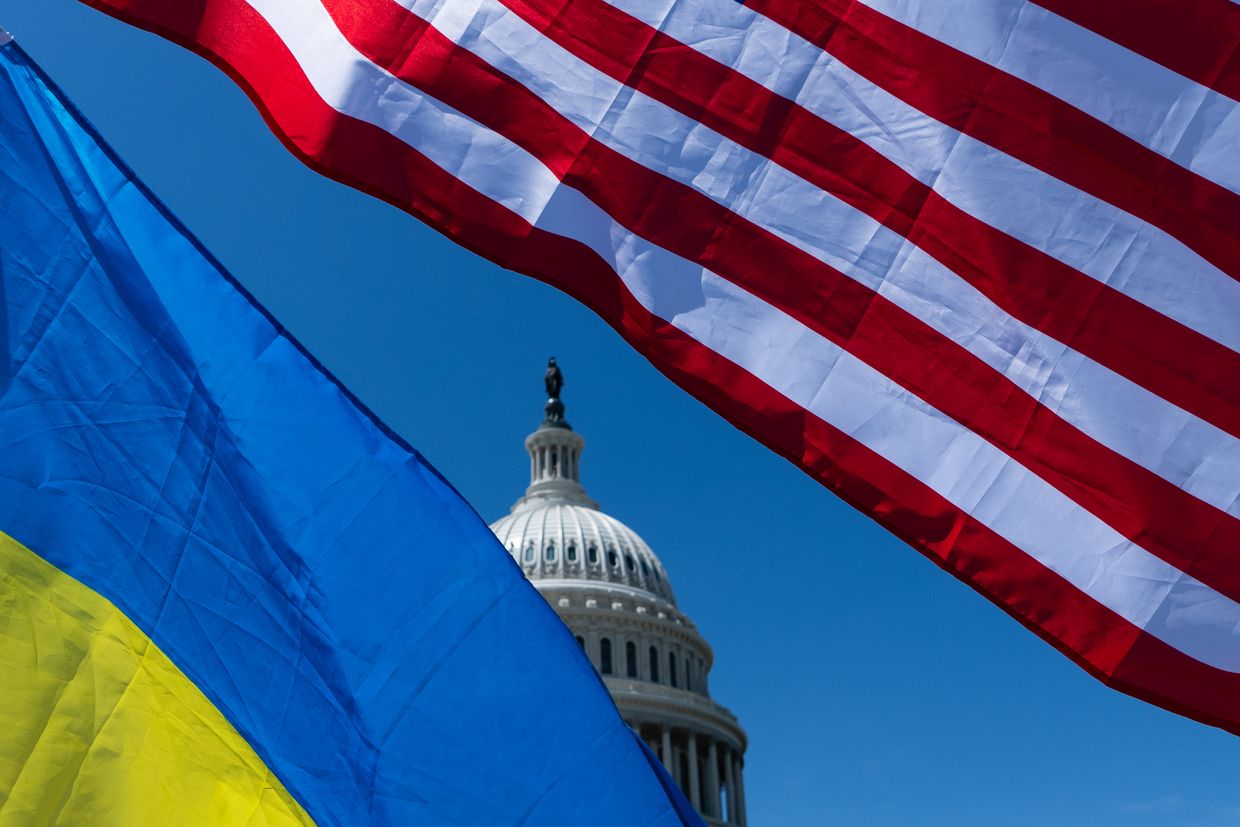

6th German IRIS-T to arrive in Ukraine by end of 2024, Zelensky says
Ukraine will receive the sixth German IRIS-T air defense system by the end of the year, President Volodymyr Zelensky said on Nov. 13 after a call with German Chancellor Olaf Scholz.
Ukraine has lobbied international partners for more air defense capabilities in the wake of intensifying Russian strikes targeting energy infrastructure.
Germany ordered an additional 17 IRIS-T air defense systems for Ukraine, Scholz said on Sept. 4. Berlin handed over the most recent IRIS-T system to Kyiv in early October.
During the call, Zelensky and Scholz discussed further cooperation in the defense sector, particularly the volume of air defense supplies for the next year and possible additional assistance with air defense systems from Germany.
The counterparts also agreed that the meetings of the Ukraine Defense Contact Group, also known as the Ramstein format, should be maintained, the Presidential Office's statement read.
Zelensky also said that Ukraine's vision of a just and lasting peace should be presented at the Group of Twenty (G20) meeting in Brazil and thanked Germany for its support.
Initially a hesitant partner, Berlin has become Ukraine's second-largest military donor after the U.S. However, Scholz is still reluctant to supply some key capabilities, namely Taurus long-range missiles.
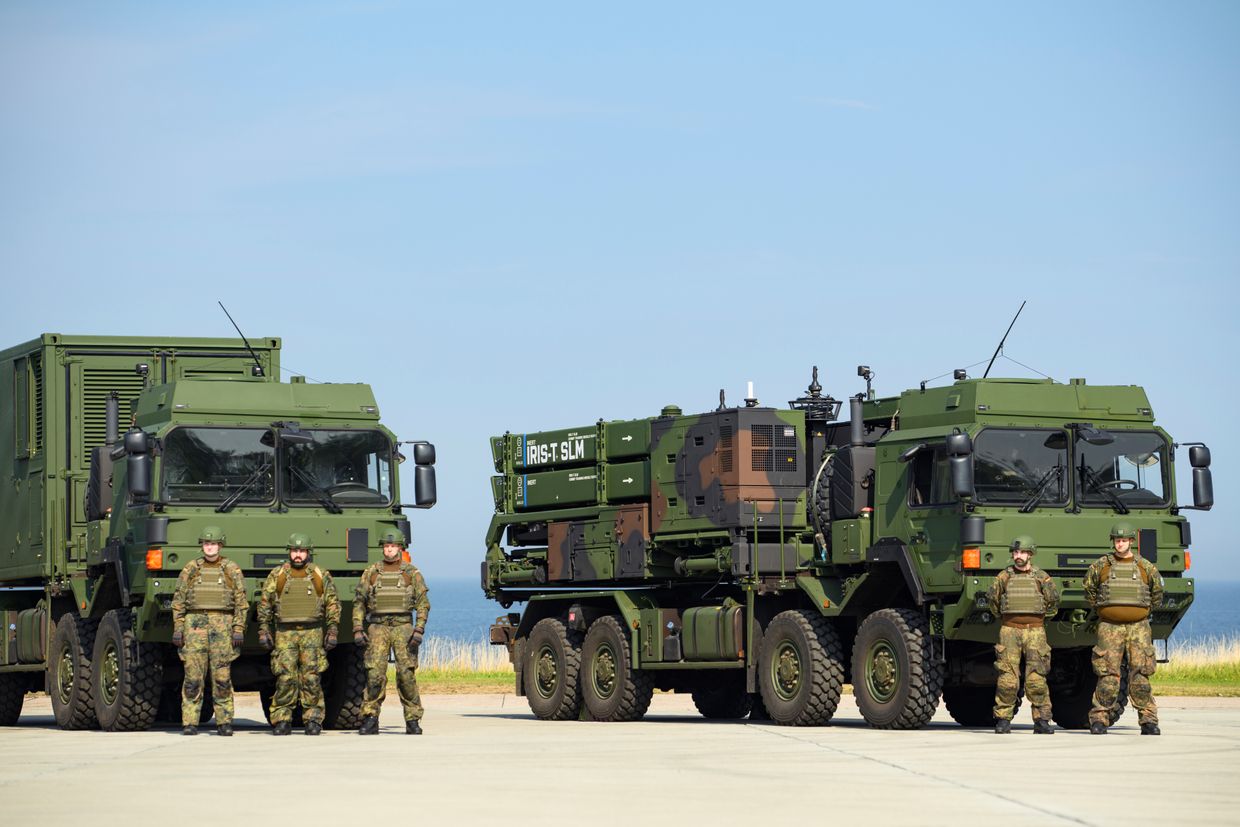

Putin cuts payments for wounded in war against Ukraine
Russian President Vladimir Putin approved on Nov. 13 a reduction in compensation for wounded soldiers participating in the war against Ukraine.
The current maximum amount of compensation is 3 million rubles (nearly $29,000), but the severity of the injury is not considered for its allocation. The change approved by Putin classifies injuries into three categories.
The payment for a "severe" injury is 3 million rubles (nearly $29,000), and for a "minor" injury, 1 million rubles (nearly $10,000). For "other minor injuries," soldiers will receive compensation of 100,000 rubles ($960), according to Russian state news agency TASS.
The decree signed by Putin does not specify how the severity of a given injury is classified.
Deputy Defense Minister Anna Tsivileva said at a meeting with the ministry's head, Andrei Belousov, on Nov. 13 that the current rules on payments for injuries create a "sense of distortion" among the soldiers.
In October, Russian forces in Ukraine suffered their deadliest month since the start of the full-scale invasion. U.K. Defense Minister John Healey said that Moscow's troops suffered 41,980 killed and wounded during October, according to British defense intelligence figures.
While Russian forces are suffering record losses, they're also making increasingly swift gains in the east of Ukraine.
According to a Bloomberg analysis published on Nov. 1, Ukraine has lost 1,146 square kilometers of its own territory since the launch of the Kursk Oblast incursion in early August, with the week up until Nov. 1 reported as the worst in terms of lost territory in all of 2024.
Meanwhile, Russia encourages its citizens to sign contracts with the army, offering financial benefits.
Instead of ordering a new wave of conscription, Putin ordered an increase in the sign-on bonus for new military recruits to serve in Ukraine to 400,000 rubles (over $4,600), effectively doubling the lump-sum payment of 195,000 ($2,260) rubles initially promised to recruits in September 2022.
Belgorod Oblast Governor Vyacheslav Gladkov announced on Oct. 7 that residents in the region will be paid a nationwide record 3 million rubles (about $31,200) through a one-time signing bonus for joining the military.
The additional payments are in line with efforts by Russian officials to entice more citizens to join the military as the country seeks to replenish its military, decimated by high losses in Ukraine.
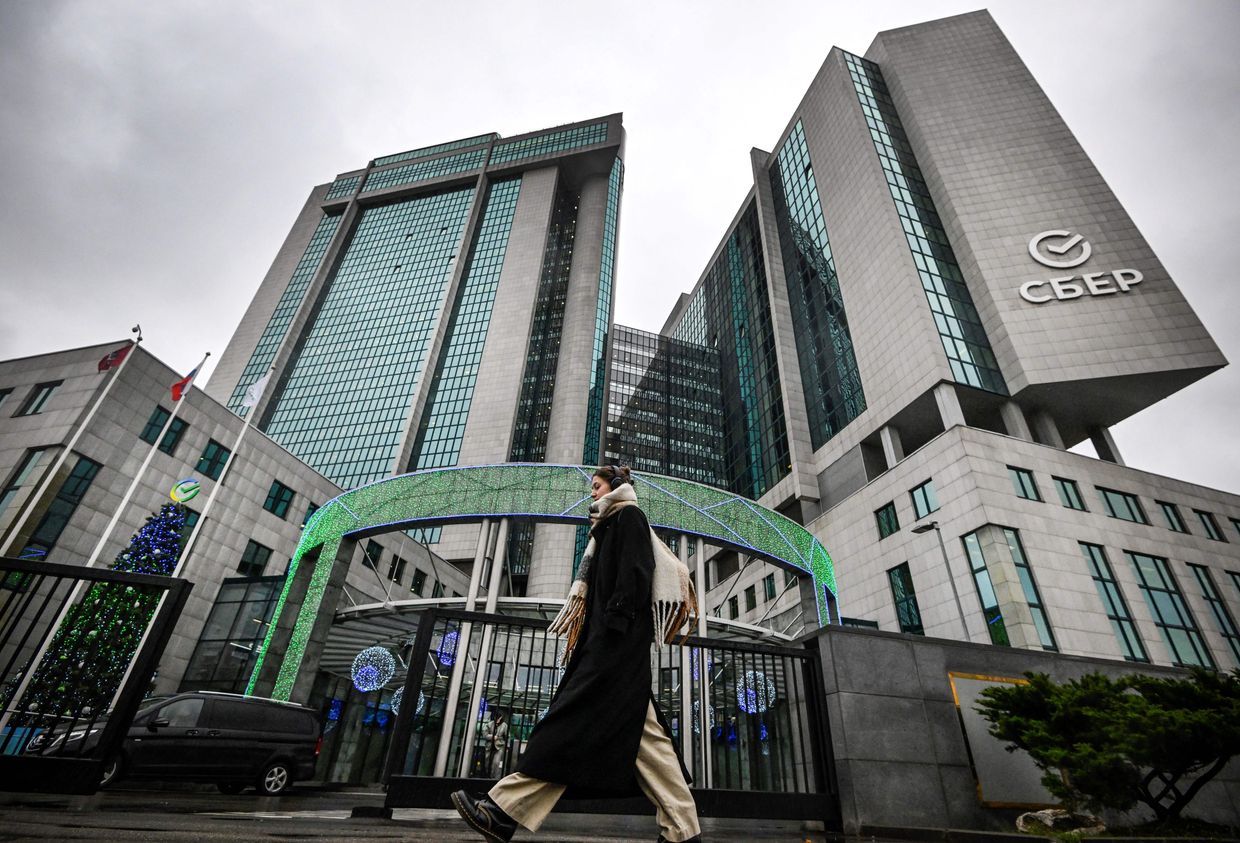

Military donations in Ukraine plummet as war pressure mounts, Bloomberg reports
Military donations in Ukraine have fallen sharply amid rising financial pressures and war weariness, with major charities reporting drops by 20% or more in 2024, Bloomberg reported on Nov. 13.
Prominent organizations such as Come Back Alive and the Serhiy Prytula Foundation, headed by the well-known Ukrainian TV personality of the same name, have seen contributions decrease by approximately one-fifth in 2024, Bloomberg reported.
Other groups supporting the Armed Forces report even steeper declines.
While these charities provide essential support, they cover only a fraction of Ukraine’s total military needs. In 2024, Prytula’s foundation raised Hr 1.4 billion ($34 million), a figure that pales in comparison to Ukraine’s $50 billion military budget.
Come Back Alive, one of Ukraine's largest charitable foundations, reported a 15% drop in donations in the same year, based on its reports on the receipt of donations.
Meanwhile, Reactive Post, another non-governmental organization, told Bloomberg that its contributions have decreased by over 40% this year compared to the same period in 2023.
Prytula cited economic challenges and the hardships brought on by power outages as likely reasons for the downturn.
In an interview with Ukrainska Pravda, Taras Chmut, the head of Come Back Alive, expressed concern over 2024’s fundraising efforts, saying they "have not started as well as we would like."
Chmut explained that as more Ukrainians leave the country, incomes decline, and living costs rise, donations are inevitably impacted.
Oleh Karpenko, the head of partnerships at Come Back Alive, told the BBC that donation patterns vary based on events such as shelling in Ukraine, drone strikes in Russia, power outages, battlefield developments, and military successes or setbacks.
On Oct. 25, President Volodymyr Zelensky announced a new eSupport initiative scheduled to launch on Dec. 1.
Under this program, each Ukrainian will receive Hr 1,000 ($24) in aid, which can be used for specific expenses. Deputy Economy Minister Oleksii Soboliev clarified that these funds could be redirected to the military through donations, even if foreign aid itself cannot be directly allocated for military purposes, as reported by the NV news outlet.
